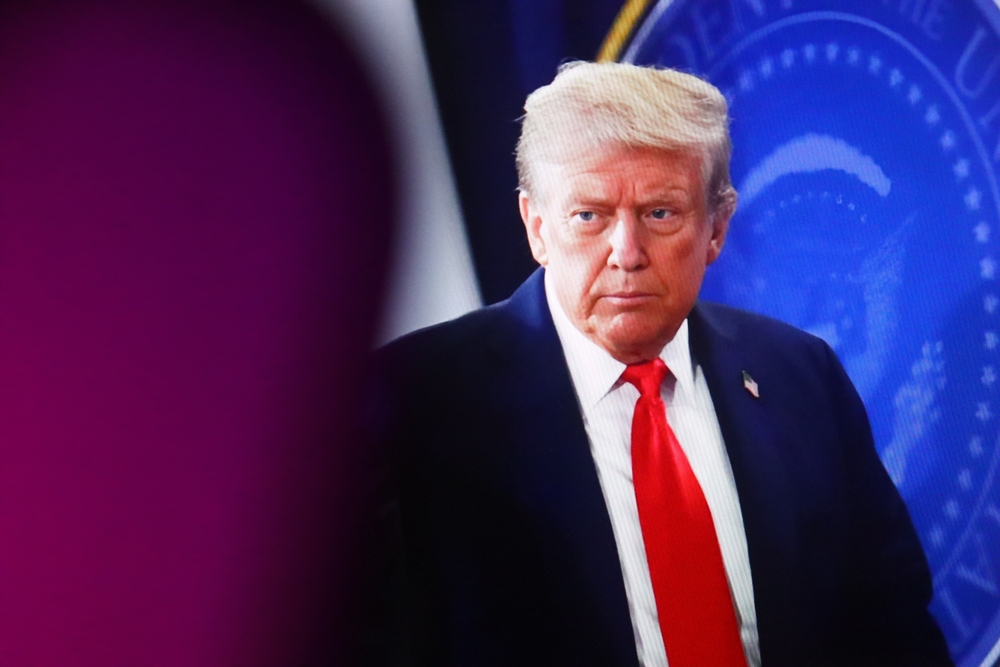President Donald Trump faced intense scrutiny at the Supreme Court on Wednesday over his sweeping tariffs, in a case that could redefine presidential authority and influence U.S. trade policy. Several conservative justices expressed doubt about the administration’s defense, which argued the tariffs were necessary to revive American manufacturing and reduce the trade deficit.
Small businesses and several states challenged the measures, arguing the president exceeded his authority by imposing what they described as an unlawful tax. The Supreme Court, with its 6–3 conservative majority, typically takes months to issue major rulings, but many expect a faster decision because of the high economic and political stakes.
Justice Amy Coney Barrett, one of Trump’s appointees, pressed the administration’s lawyers on the breadth of the tariffs. “Do you contend that every country posed a threat to our defense and industrial base? Spain? France?” she asked. “I can see it with some, but not all.”
Billions of dollars in tariff payments are at stake. If the administration loses, the government may have to refund large sums already collected—a process Barrett warned could become “a complete mess.”
Treasury Secretary Scott Bessent, Commerce Secretary Howard Lutnick, and U.S. Trade Representative Jamieson Greer attended the hearing. Officials said the White House had alternative legal strategies if the court ruled against it. “The White House is always preparing for Plan B,” press secretary Karoline Leavitt said before the hearing.
Later, Trump told Fox News that the hearing went “very well.” He warned that losing the case would be “devastating for the country” and called it “one of the most important in American history.”
The Emergency Law Behind the Tariffs
The case focuses on the International Emergency Economic Powers Act (IEEPA), a 1977 law that allows presidents to regulate trade during national emergencies. Trump first invoked it in February to impose tariffs on China, Mexico, and Canada, citing drug trafficking as an emergency.
In April, he expanded the tariffs, applying duties from 10% to 50% on imports from nearly every country. He argued that the U.S. trade deficit itself posed an “extraordinary and unusual threat.” The tariffs were implemented gradually while the administration pushed other countries to negotiate new trade deals.
The administration argued that the power to regulate trade includes authority to impose tariffs. Solicitor General John Sauer warned that invalidating Trump’s actions could expose the U.S. to “ruthless trade retaliation” and “ruinous economic and national security consequences.” He described the crises as “country-killing and unsustainable.”
Justices Press on Limits of Presidential Power
The justices questioned the broad scope of the administration’s claimed authority. “The justification allows tariffs on any product, from any country, at any rate, for any period,” Chief Justice John Roberts said.
Under the Constitution, Congress—not the president—controls taxation. Courts have long limited how much of that authority lawmakers can delegate. Justice Neil Gorsuch asked, “What would prevent Congress from giving up all responsibility for regulating foreign commerce?” He admitted he was “struggling” to accept the administration’s reasoning.
Gorsuch also posed a sharp hypothetical: “Could the president impose a 50 percent tariff on gas-powered cars to address the extraordinary threat of climate change?”
Tariffs vs. Taxes: The Legal Battle
Opposing lawyers argued that IEEPA does not authorize tariffs and that Congress never intended to grant presidents unlimited trade powers. Neil Katyal, representing small businesses, said the law allowed embargoes or quotas—but not revenue-raising tariffs.
The justices focused closely on the law’s text and history. While past presidents used IEEPA for sanctions, Trump was the first to apply it to tariffs. Sauer maintained that tariffs were “regulatory measures, not taxes,” saying revenue generation was “incidental,” despite Trump’s repeated claims of billions collected.
Justice Sonia Sotomayor rejected that claim. “You say tariffs aren’t taxes, but that’s exactly what they are,” she said. Justice Brett Kavanaugh added that it seemed inconsistent to allow the president to block trade entirely but not impose even a small tariff.
Billions at Stake for Businesses
Analysts estimate the case could affect $90 billion in import taxes already paid—nearly half of U.S. tariff revenue through September. Officials warned that the total could rise to $1 trillion if the court delays its ruling until June.
The hearing lasted nearly three hours, far longer than scheduled, and drew a packed courtroom. If the Supreme Court sides with Trump, it would overturn three lower-court rulings that found the administration exceeded its authority.
Outside the court, small business owners watched closely. Among them was Sarah Wells, founder of Sarah Wells Bags, which designs and imports bags for breast pumps. Her company paid about $20,000 in unexpected tariffs this year, halted imports, shifted suppliers, and laid off staff.
After the hearing, Wells said she felt cautiously optimistic. “They seemed to recognize the overreach,” she said. “It felt like the justices understood that this power must be restrained.”


